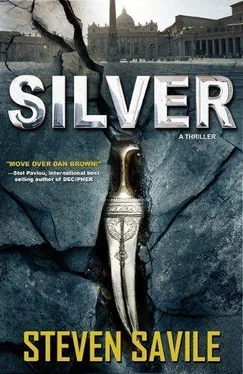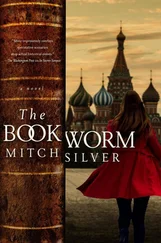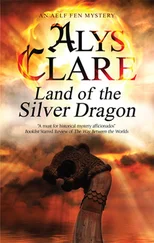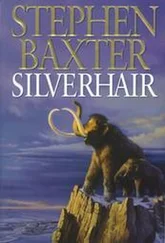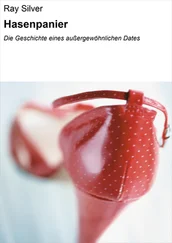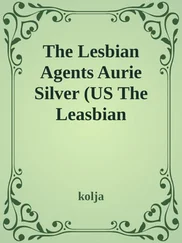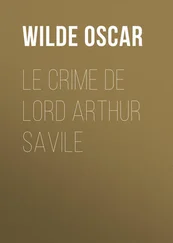Steven Savile - Silver
Здесь есть возможность читать онлайн «Steven Savile - Silver» весь текст электронной книги совершенно бесплатно (целиком полную версию без сокращений). В некоторых случаях можно слушать аудио, скачать через торрент в формате fb2 и присутствует краткое содержание. Жанр: Триллер, на английском языке. Описание произведения, (предисловие) а так же отзывы посетителей доступны на портале библиотеки ЛибКат.
- Название:Silver
- Автор:
- Жанр:
- Год:неизвестен
- ISBN:нет данных
- Рейтинг книги:4 / 5. Голосов: 1
-
Избранное:Добавить в избранное
- Отзывы:
-
Ваша оценка:
- 80
- 1
- 2
- 3
- 4
- 5
Silver: краткое содержание, описание и аннотация
Предлагаем к чтению аннотацию, описание, краткое содержание или предисловие (зависит от того, что написал сам автор книги «Silver»). Если вы не нашли необходимую информацию о книге — напишите в комментариях, мы постараемся отыскать её.
Silver — читать онлайн бесплатно полную книгу (весь текст) целиком
Ниже представлен текст книги, разбитый по страницам. Система сохранения места последней прочитанной страницы, позволяет с удобством читать онлайн бесплатно книгу «Silver», без необходимости каждый раз заново искать на чём Вы остановились. Поставьте закладку, и сможете в любой момент перейти на страницу, на которой закончили чтение.
Интервал:
Закладка:
A radio in an open window played “My Funny Valentine.” The vocal strain drifted across the narrow street, transforming it into something out of a Wim Wenders movie. A girl on the street corner sat making Chinese cranes out of scraps of paper. She lined them up along the gutter. There were hundreds of them. She looked up at him, eyes wide with sorrow, and said, “Dies, damit Gott sie nicht vergisst.” He knew what she meant: they are so God doesn’t forget them. It was a surreal and sad moment, this little girl mourning hundreds, perhaps thousands, of people she had never met. That was the power of a tragedy on such a huge scale. It hurt everyone. The suffering was collective. The mourning public, loud and heartbreaking.
The “other shoe” had dropped in the middle of the early morning rush hour when hundreds of thousands of people were on their way into work across the city, and every level of the public transport system had been hit.
Everything about it made Konstantin angry-he wanted to lash out, hit something, someone-but it was an entirely impotent rage. There was nothing he could do for anyone here, and there was cold comfort in knowing that they were right, that Berlin had been one of the primary targets. It had been a long time since he had left Mother Russia-so long in truth he found it difficult to bring back memories of her streets and her dizzying architecture. Now all he remembered were her crimes.
The world had changed around him in that time. There had been an ethic to terror once, it protected normal people going about their normal lives. They were shielded by some sort of covenant between the oppressor and the oppressed. Strikes were made against legitimate targets: military bases, intelligence operations, weapons stores, and with more localized terror campaigns like Northern Ireland the Provo targets were policemen, political movers and shakers, journalists and the like. They weren’t kids on the way to school. They weren’t mothers pushing baby buggies and balancing groceries. They weren’t the city’s financial wiz-kids, with their heads full of long-term futures. They weren’t the baristas and the store clerks and the bus drivers and the road sweepers that made day-to-day living so much more pleasant than it might have been. The face of terror had changed.
It was more Russian in nature.
Konstantin shivered at the thought.
He felt for these people even though he did not know them.
The old man was right: it was all about the spectacle. This fear was Russian. It dug deep into the psyche of the people. It hurt them where they felt safest-in their everyday life. It was like the KGB arrest squads that battered down the door at four a.m.-it was disorientating, frightening. They came in making noise, shouting, screaming, threatening violence while the suspect, naked and vulnerable, woke to the chaos of their forced entry. If they fought back, they were beaten. If they resisted, they were beaten. If they didn’t fall to their knees, beg, confess, they were beaten. If they weren’t alone, their wives, girlfriends or lovers were beaten to make them beg and plead. At four a.m. fear broke strong men. That was the Russian way.
He knew that because, once upon a nightmare, he had been one of those four o’clock men.
And now that same fear was being turned upon everyday people as they went about their everyday lives. Konstantin felt curiously at home in this violent society, more so than he ever could have in a world of poets and lovers. But then he had been raised with violence into a world of violence, so it was hardly surprising.
Konstantin was one of the few people on the street walking with a purpose. He was alert, eyes moving quickly from face to face, looking for guilt or complicity in any of the people he passed. Of course it was never going to be that easy. All he saw was shock and disbelief repeated over and over in every face. He knew what they were thinking: How could it happen here? How could it happen to us?
If the paper trail was to be believed, he lived month to month with very little to spare. He paid his bills on time. He had borrowed a grand total of eleven books from the library since coming to Berlin, none of the titles particularly surprising given his specialism. There were no untoward comings or goings registered against his passport number with immigration control. He was the very definition of an ordinary man.
All of that in itself interested Konstantin.
In his world there were no ordinary men.
Metzger maintained a small apartment in Charlottenburg, one of the more affluent boroughs of the old city. It was close to the University of the Arts, so what it cost in increased rent, it saved in convenience. The location might have been an extravagance, but it was an extravagance that was very much in keeping with the kind of man who counted out every penny and measured its worth against its cost. Charlottenburg was an oasis of calm even in the days of the divided city.
He turned onto Schlossstrasse. It was easy to imagine the residents hidden behind those windows, safe in their ivory towers, untouched by the suffering it brought to their city. They would not be so distant today. That too was an element of the new fear-it was intimate.
A newspaper vendor on the street corner was shouting news of the tragedy to anyone who would listen and waving the latest edition, hot off the press, under their noses. Konstantin crossed the street to avoid the man. He counted the other people on the street. There were twenty-seven. One of the busiest streets in the city at what should have been one of the busiest times, and there were only twenty-seven people out about their business. There was a painted red kiosk selling bratwurst and other sausages. A single man sat huddled up against the cold with a half-eaten brat and dried onions slathered in mustard and ketchup. He was the closest thing to normal in the street.
How had it come to this? How had this kind of fear become so commonplace?
Metzger lived on the third floor behind a security intercom, through a marbled foyer and up a curving granite stair. Everything about the building said Old World affluence. He ran his finger down every one of the buttons until someone buzzed him in. People were careless like that, even in the anonymity of the big cities-especially in the anonymity of the big cities. He closed the door quietly behind him and took the time to wipe the street off his shoes on the mat, scuffing each sole backward and forward three times before he opened the second inner door and walked through to the foyer.
It was three degrees colder than it was in the street. The huge iron radiators were at least half a century old, and no doubt the boiler feeding them was just as decrepit. Brass mailboxes lined the right-hand side wall of the small antechamber. Konstantin ran his fingers over the names, stopping at G. Metzger. He didn’t have a key for the box. He didn’t need one. It wasn’t a particularly sophisticated lock. Mailboxes seldom were. The mail, it seemed, was sacrosanct. Again, that was a marked difference from his world, where the mail was monitored, censored and often used to incriminate, no matter that Stalin had been dead for the best part of sixty years. Old habits die hard.
He took his key chain out of his pocket, sorting through them until he found a small enough bump key. Konstantin took his left shoe off and set it down on the small shelf beneath the mailboxes. The theory behind the bump key was simple: all of the grooves filed down to their lowest peak setting. He slipped it all of the way into the lock, then eased it out a single notch. He applied the slightest of pressure to the key, as though beginning to turn it, then bumped the key with the heel of his shoe. The sudden sharp impact caused the pins to jump out of the rotator, giving him the fraction of a second he needed to turn the key. It took him four seconds to open the mailbox.
Читать дальшеИнтервал:
Закладка:
Похожие книги на «Silver»
Представляем Вашему вниманию похожие книги на «Silver» списком для выбора. Мы отобрали схожую по названию и смыслу литературу в надежде предоставить читателям больше вариантов отыскать новые, интересные, ещё непрочитанные произведения.
Обсуждение, отзывы о книге «Silver» и просто собственные мнения читателей. Оставьте ваши комментарии, напишите, что Вы думаете о произведении, его смысле или главных героях. Укажите что конкретно понравилось, а что нет, и почему Вы так считаете.
